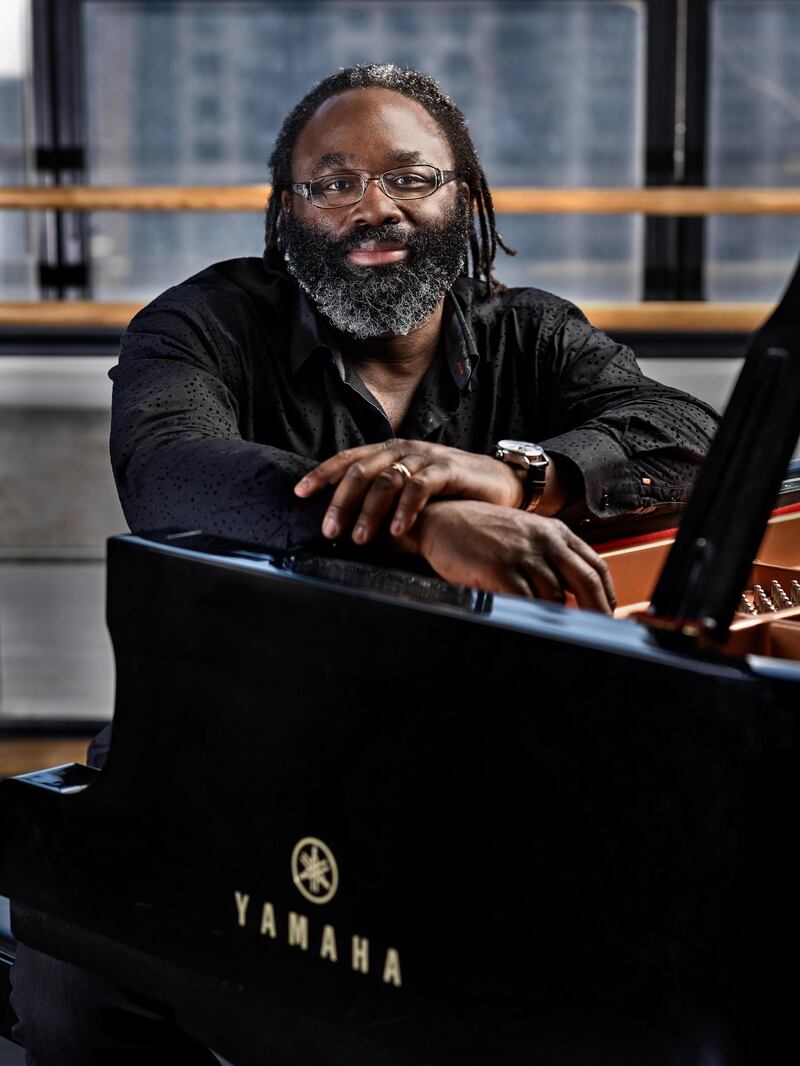Ever been pranked by a concert pianist on a completely different continent? I have.
It was 9pm in Abu Dhabi when I called Awadagin Pratt to speak about his visit to NYU Abu Dhabi, where he will perform tomorrow. His voice on the other end of the line was deep, drowsy and almost devoid of interest. "Hello?" Pratt said, as I responded with a flurry of hellos and can-you-hear-mes. "Yes," he replied, dully. "What's going on?"
I was confused. My interview with the pianist was indeed scheduled for this time. "What?" Pratt repeated again, before a loud beep cut the call. He'd hung up.
I took a deep breath and dialled again. "Hello?" This time the voice was warm, polite and inviting. Taken aback, I asked Pratt about the voice I heard a moment earlier.
The musician burst out laughing, apologising that I had fallen prey to his prank voice mail message. Such is the way with the accomplished Pratt, a serious musician by all accounts, but one who isn't afraid to have a bit of fun.
Before he won the Naumburg International Piano Competition in 1992 – the first African-American to do so – Pratt was playing no more than two concerts a year. He was 26 at the time and had little idea of what a career-defining moment the accolade was.
But there was little time for him to adjust. His new reality hit hard and fast as he was told he would play more than 50 concerts that year. And then 70 the year after that. "It was definitely a steep learning curve," Pratt, now 53, tells told The National. "For a guy who was playing two concerts a year, I had no idea of the challenges that were in store for me. There were issues with travelling and preparation. I also had no clue how physically rigorous it was to play that many shows. There were times when I had to learn a brand new piece within a week."
However, he proved he was more than up to the task. "Some years I played more than a 100 concerts. These days, I average about 50."
Pratt has also had several high-profile audience members. He performed several times at the White House for presidents Barack Obama and Bill Clinton. "Those were definitely high moments of my career," he says. "There are a few others, like the time I played Carnegie Hall. That was a dream come true."
Pratt, who began playing the piano at the age of 6, cites Ludwig van Beethoven as his first musical love. "I didn't know all of his music but his character drew me in," Pratt says. "I was as infatuated by the man's story as I was by his music."
He says he was equally as intrigued by the work of Franz Liszt, one of Beethoven's successors. It's probably fitting then, that Pratt will be performing work from both Beethoven and Liszt when he performs at the Red Theatre in NYUAD.
"The pieces develop organically from one to the next," Pratt says. "Though they are different in atmosphere, there is a cohesion that binds them. The compositions share the same main four notes but they change in character – what starts off as an energetic rendition of that progression eventually grows into a calm musicality."
As well as his recital tomorrow, Pratt will host a masterclass today and a lecture on Sunday. Three NYUAD students will play for Pratt in a public format as he shares his insights and technical approach with them and the audience, while his lecture will cover the concept of thematic transformation, a musical technique developed by Liszt.
"It's when a basic theme or a series of notes repeats throughout a musical work," Pratt explains. "But it goes through a series of transformations. It can also be disguised and appears in several different roles."
Although it may have been difficult to adjust to a life of constant travelling at first, he says he now feels lucky to see the world while working. So what exactly is his favourite part of visiting new places? "I get to try so many different types of food," he says, chuckling. "I particularly love going to Japan and Italy."
But when it comes to performing in new places, he says he learnt that audience reactions to can vary. "It can be hard to gauge whether they liked the performance or not," he says. "In Japan, for instance, an ovation can be extremely quiet but last a long while, I found.
"At first, I thought audience members hated my playing when they started clapping softly. But then, five minutes later, they were still clapping. I guess the best marker for a good performance is if you're invited back."







